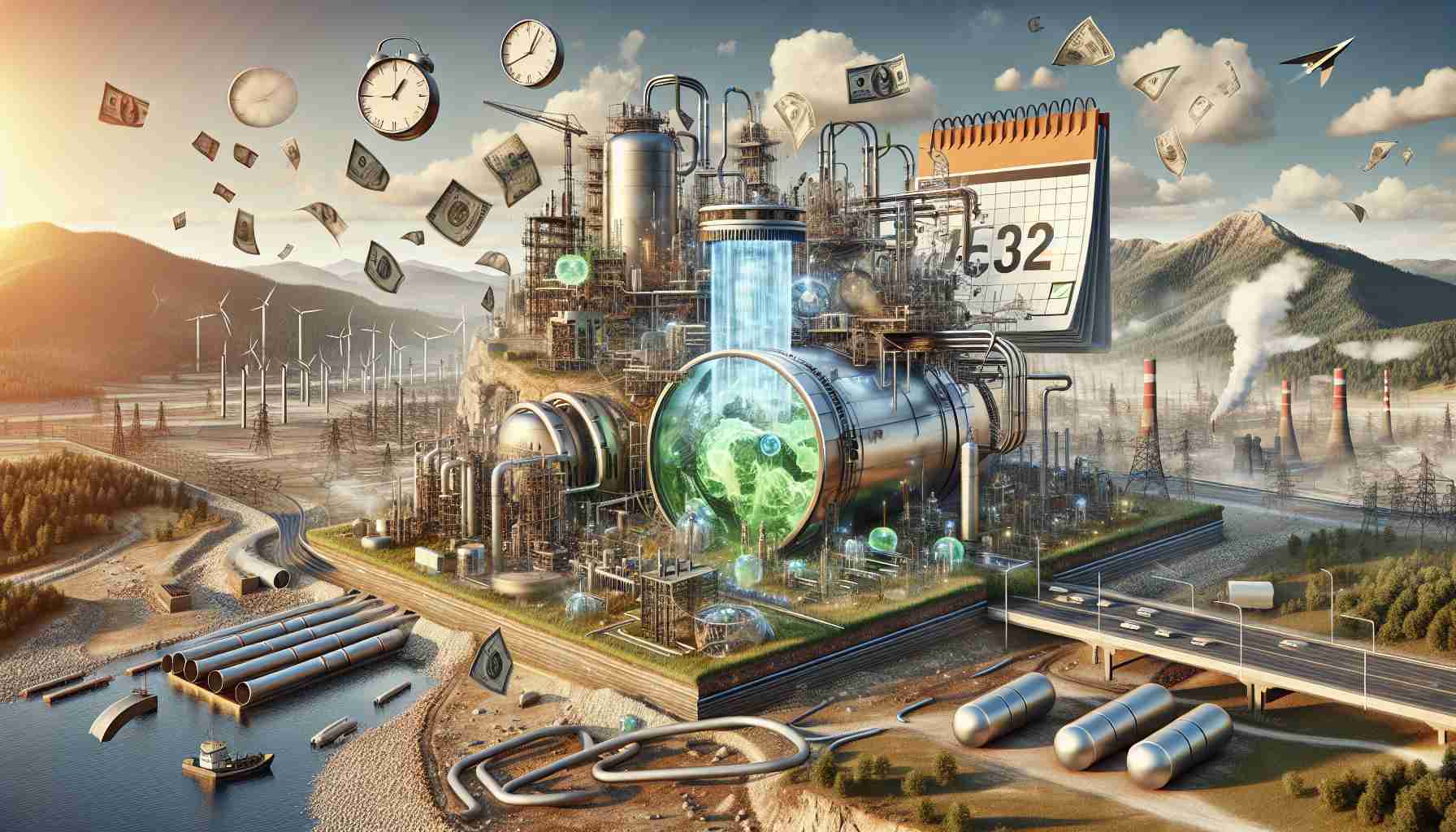Investing in the Future of Clean Energy
In a major step towards advancing clean energy, the US Department of Energy (DOE) has officially allocated funds to two significant regional hydrogen hubs. This announcement, made just days prior to President Donald Trump’s inauguration on January 20, marks a pivotal moment for hydrogen technology in the United States.
The Heartland Hydrogen Hub has received an initial award of $20 million from its total allocation of $925 million for the year 2023. Simultaneously, the Mid-Atlantic Hydrogen Hub, known as MACH2, secured $18.8 million out of its planned $750 million funding. This funding is set to catalyze a new era of hydrogen production and use across several regions.
MACH2, which encompasses areas in Pennsylvania, Delaware, and New Jersey, has ambitious plans to generate green hydrogen aimed at powering industrial sectors and facilitating heavy-duty transportation. Key to this initiative is the establishment of multiple refueling stations that will cater to trucks and fuel cell electric buses, helping to reduce carbon emissions and promote sustainable transport options.
These strategic investments underscore the pivotal role that hydrogen can play in transitioning to a cleaner energy landscape and transforming energy consumption practices across the nation. The future of energy is not just bright; it’s green.
The Broader Implications of Hydrogen Infrastructure Development
The recent investments in hydrogen hubs represent a significant stride in the United States’ clean energy agenda, but their implications extend far beyond immediate energy needs. Firstly, the social fabric of regions like Pennsylvania, Delaware, and New Jersey stands to benefit as jobs in the clean energy sector burgeon. According to the International Renewable Energy Agency, the shift to hydrogen could create millions of jobs worldwide and stimulate local economies through infrastructure development.
Culturally, the acceptance of hydrogen technology serves as a pivotal moment. As communities engage with alternative energy, they may adopt more sustainable lifestyles. This shift has the potential to alter consumer behavior, favoring products and services that prioritize sustainability, thus solidifying a green ethos in American culture.
From an economic standpoint, the establishment of regional hydrogen hubs signifies a movement towards energy independence. By fostering domestic hydrogen production, the U.S. can decrease reliance on fossil fuels, potentially stabilizing energy prices while enhancing resilience against global market fluctuations.
Moreover, the environmental impact cannot be understated. As such hubs expand, carbon emissions from heavily polluting sectors can diminish significantly. The shift towards green hydrogen aligns with global climate goals, fostering a cleaner atmosphere and spurring innovation in emission-reduction technologies.
Finally, looking to the future, trends indicate that hydrogen may play a pivotal role in achieving net-zero emissions by 2050, challenging existing paradigms of energy production and logistics. As investments in this technology proliferate, the long-term significance could reshape economies, transform communities, and ultimately contribute to a sustainable global future.
Hydrogen Energy: Paving the Way for a Sustainable Future
Investing in the Future of Clean Energy
The recent investments in hydrogen technology by the U.S. Department of Energy (DOE) signify a monumental shift towards sustainable energy solutions. With the allocation of an extensive budget, the Heartland and Mid-Atlantic Hydrogen Hubs are poised to become the cornerstone of hydrogen production and utilization, propelling the United States into a new era of clean energy.
Key Features of the Hydrogen Hubs
1. Funding Allocation: The Heartland Hydrogen Hub has received a substantial initial award of $20 million from its total $925 million fund for 2023, while the Mid-Atlantic Hydrogen Hub (MACH2) has secured $18.8 million of its planned $750 million funding.
2. Geographic Reach: MACH2 covers strategic areas in Pennsylvania, Delaware, and New Jersey, aiming to create an integrated hydrogen network that not only supplies energy but also contributes to regional economic growth.
3. Green Hydrogen Production: Both hubs are focused on producing green hydrogen, which is generated from renewable energy sources, thus reducing the carbon footprint associated with hydrogen production.
4. Infrastructure Development: A critical goal of MACH2 is the establishment of hydrogen refueling stations for trucks and fuel cell electric buses, enhancing the capability for heavy-duty transportation and reducing reliance on fossil fuels.
Pros and Cons of Hydrogen Energy
Pros:
– Sustainability: Hydrogen is a clean fuel option that, when used in fuel cells, emits only water vapor.
– Diverse Applications: Hydrogen can be utilized across multiple sectors, including transportation, industrial processes, and electricity generation.
– Economic Growth: Investment in hydrogen infrastructure creates jobs and stimulates local economies.
Cons:
– Production Costs: Currently, producing green hydrogen can be expensive compared to conventional energy sources, though costs are expected to decrease with advancements in technology.
– Infrastructure Challenges: Significant investment is needed to develop the infrastructure for hydrogen distribution and refueling.
Use Cases of Hydrogen Technology
– Heavy-Duty Transportation: Hydrogen fuel cell trucks and buses can facilitate the transportation of goods while significantly lowering greenhouse gas emissions.
– Industrial Applications: Hydrogen can be used as a feedstock for various industrial processes, helping industries transition to cleaner practices.
– Energy Storage: Hydrogen serves as an effective means of storing excess renewable energy, providing a flexible response to fluctuating energy demands.
Market Trends and Future Predictions
As the demand for zero-emission technologies rises globally, the hydrogen energy market is expected to flourish. Analysts predict that by 2030, the market could reach significant milestones in terms of production capacity and user adoption, driven by governmental support, technological advancements, and increased commitment to carbon neutrality.
Security and Sustainability Measures
Investing in hydrogen technology not only supports energy independence but also enhances energy security by diversifying energy sources. Moreover, the focus on maintaining sustainability throughout the production and utilization phases will ensure that hydrogen remains a green energy alternative.
Conclusion
The funding for the Heartland and Mid-Atlantic Hydrogen Hubs presents a groundbreaking opportunity for the U.S. to lead in the clean energy transition. As investments in hydrogen technology continue to grow, the future looks promising for sustainable energy initiatives and their role in combating climate change. For more details on the initiatives, visit DOE – U.S. Department of Energy.









